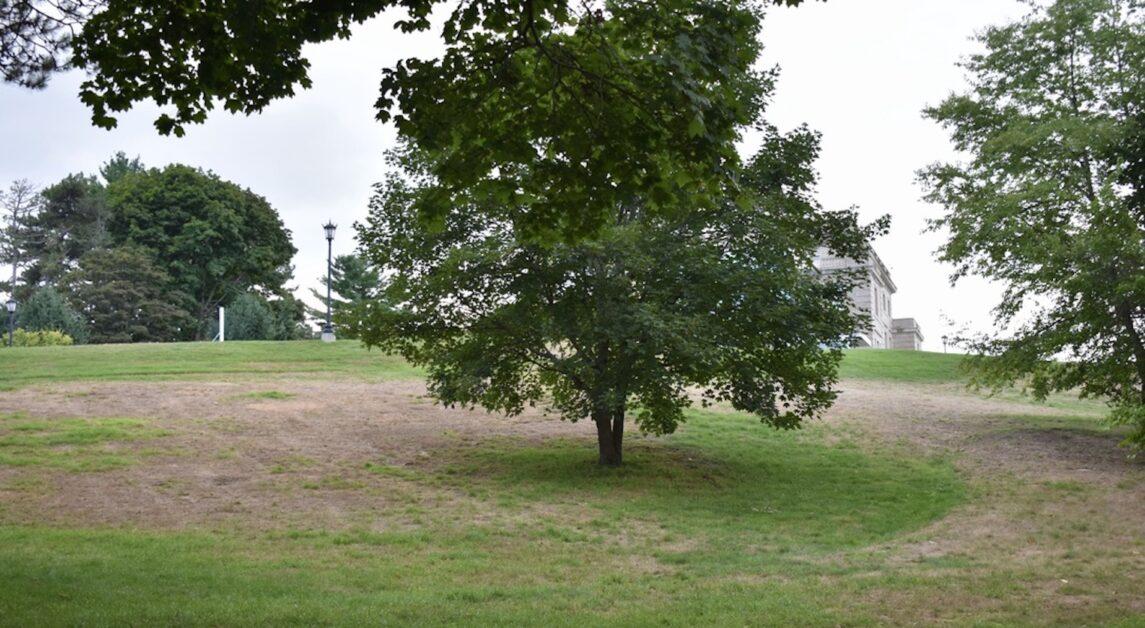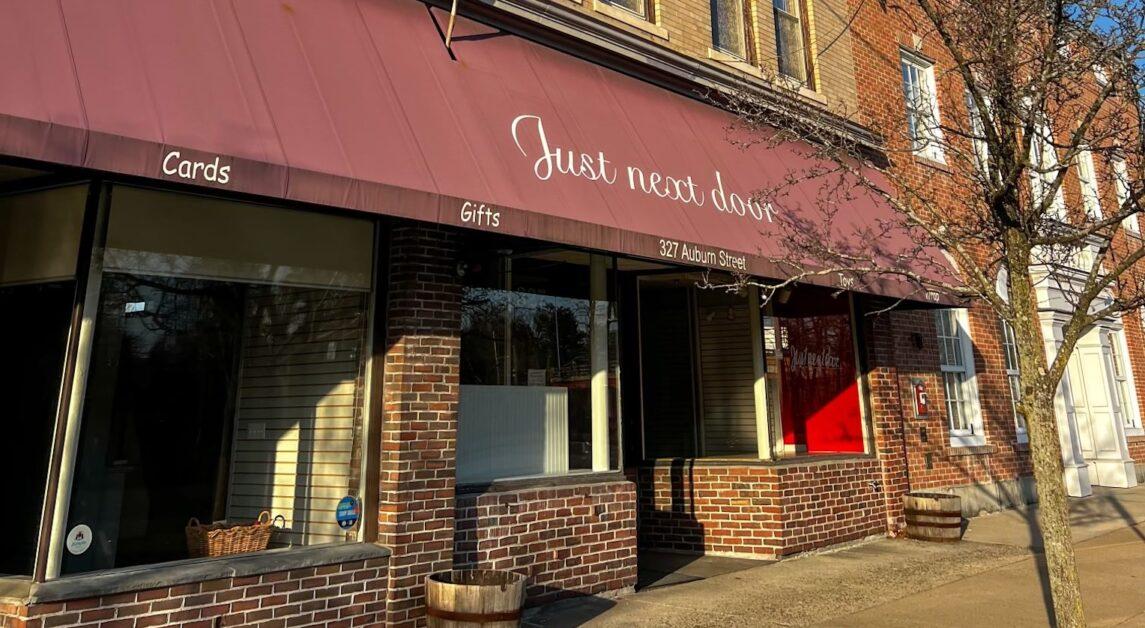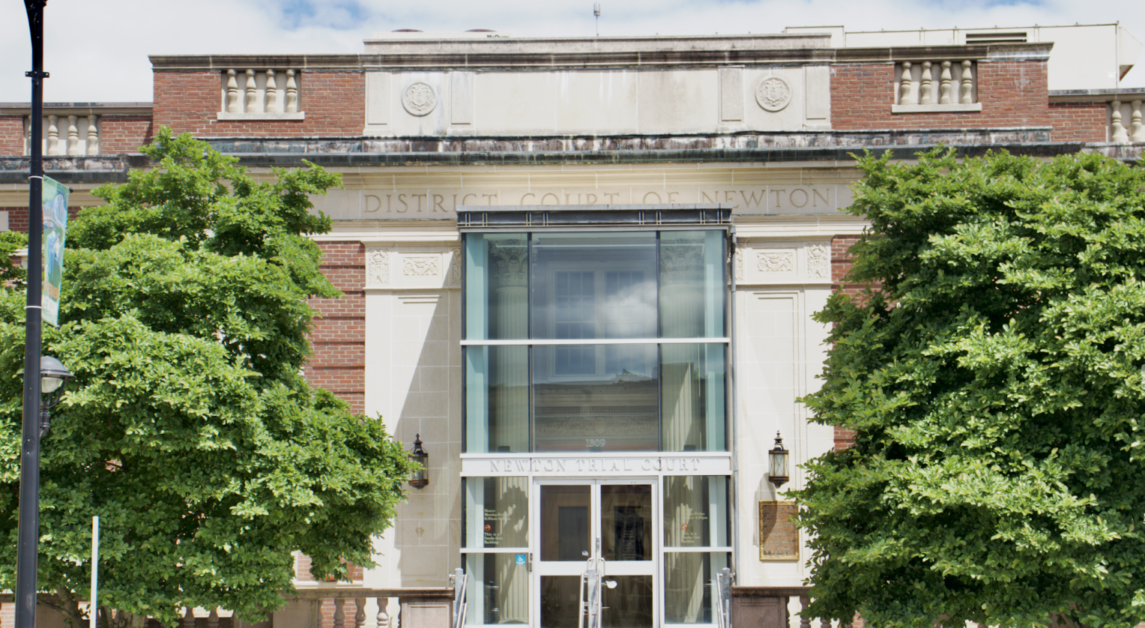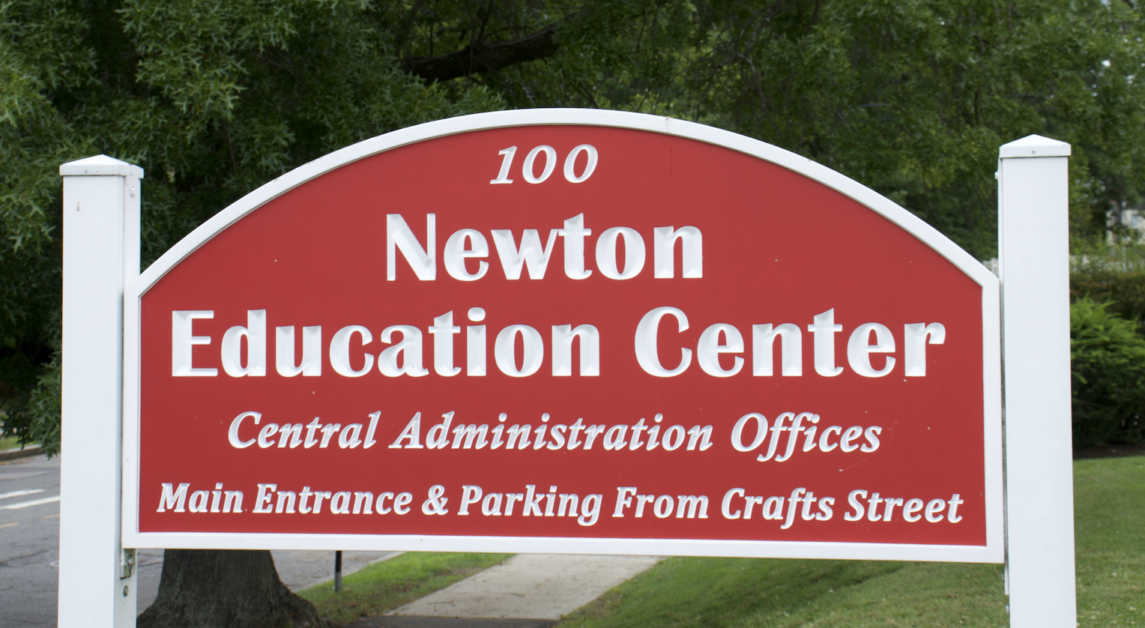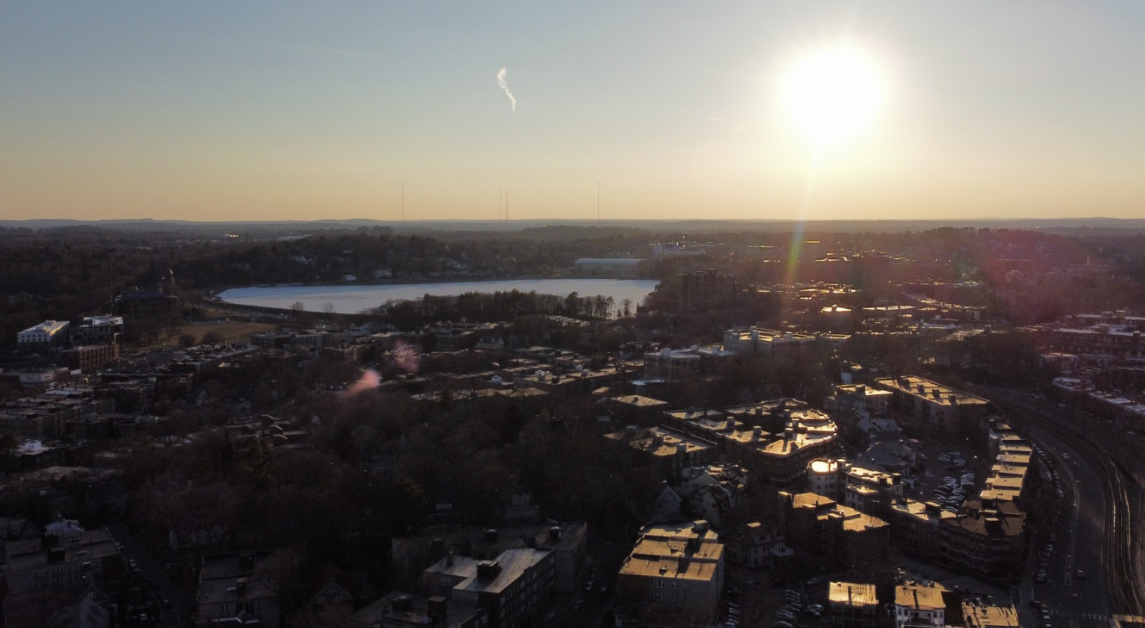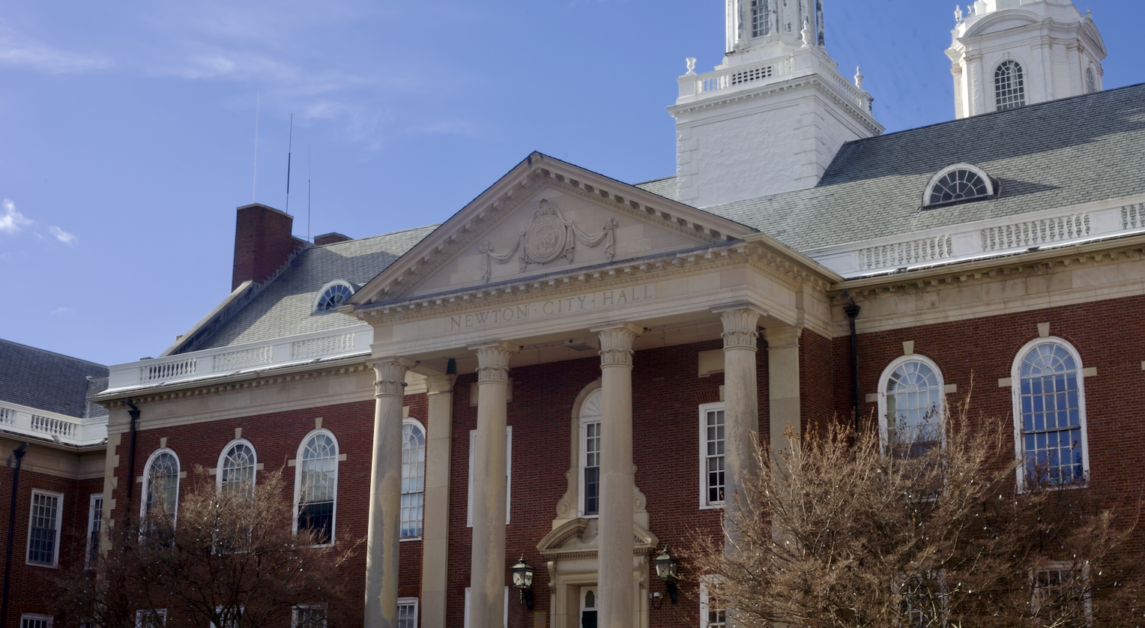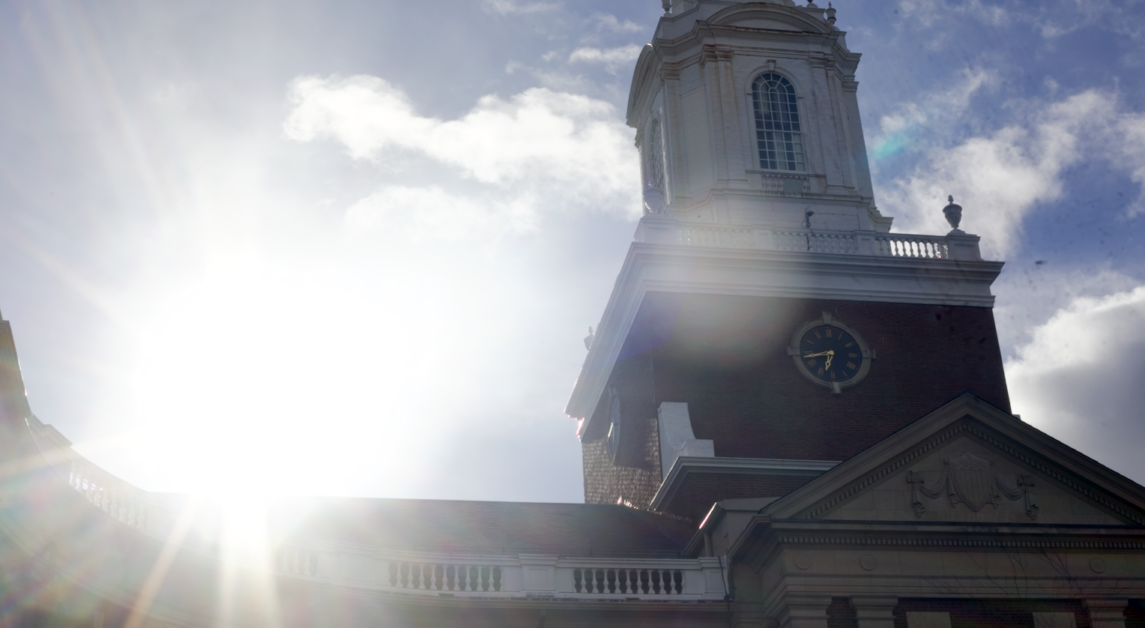As Greg Maslowe surveys the Newton Community Farm, he sees dry soil, burned up lettuce, and wilting trees. An extreme drought and hot temperatures have endangered the plants’ health, according to Maslowe, the farm’s manager.
“We have to move irrigation every hour and a half, all day long, three days a week,” he said. “That is definitely costing us time, which is money.”
Whether it be at farms or golf courses, the summer drought has left Newton businesses with changes in revenue. For some, it’s increased sales. For others, like Maslowe, it spells danger for businesses.
Some are wondering if it is the result of climate change.
Both Middlesex County and Suffolk County, where Boston College’s Newton and Chestnut Hill campuses are located, are categorized as being in a state of extreme drought according to the University of Nebraska-Lincoln’s drought monitor. About 25 percent of Massachusetts is under the designation of extreme drought.
Rainfall levels in the City of Newton are roughly 9 inches lower than what is expected in a normal year, according to Mayor Ruthanne Fuller’s Aug. 18 newsletter update. Newton has experienced record-high temperatures this summer, exceeding the historical average range of 63–81 degrees Fahrenheit, with some days reaching into the 90s.
Several months of low rainfall have created conditions sufficient to classify an extreme drought in Newton and other cities, according to Massachusetts’ Drought Management Task Force.
Across the city, Newton is feeling the environmental impacts of the drought.
“All of us can easily see that ponds, streams and rivers are low, lawns and gardens are turning brown, the ground is dusty and we know farmers’ yields are down,” Fuller wrote. “Drought is also stressing our trees, making them more vulnerable to being uprooted or damaged during storms.”
Newton’s businesses are feeling the heat as well. AJ Juarez, owner of Juarez Landscaping and Tree Services, said the drought is affecting his company’s work.
“People are not getting their lawns cut because of the weather,” he said. “That is something we didn’t expect.”
Other businesses have seen an uptick in both revenue and clientele during the hot months. Sterling Golf Management, the company that manages the Newton Commonwealth Golf Course, is one of them. According to Jay Miller, the company’s director of golf operations, the Newton Commonwealth Golf Course has seen a 17 percent increase in gross revenue.
“Most of our courses will have our own wells where we pump the water into a big irrigation pond to irrigate the greens,” he said. “During drought conditions, we already know what to do. However, the state or city might contact us, even if it’s our own well water, asking us to cut back 30 or 40 percent.”
Miller says the Newton Commonwealth Golf Course uses a process he calls “light dusting” in order to keep the course healthy but not oversaturated during a drought.
“We will lightly spray the fairways, but not using anywhere near the water we would normally use,” he said. “Our first priority is keeping the tee box nice and green.”
Miller also said other aspects of the golf course’s business are thriving in the heat.
“Since the start of this heatwave and drought conditions, from about 10:30 a.m. onwards, my golf cart revenue goes up,” he said. “People don’t want to push a cart or carry their bags because it’s so hot. Our soft drink, Gatorade, and even beer sales are way up this year.”
Miller credits his clientele’s understanding and acceptance of weather conditions in keeping business thriving.
“Ninety-eight percent of golfers understand [the condition] of the drought,” he said. “We haven’t had hardly any complaints this year.”
Newton’s drought has reminded many residents and businesses of ecological problems associated with climate change.
Maslowe, the community farm’s manager since 2006, said the drought is creating more work for his staff, and it’s endangering the farm’s crops.
“Even our trees are wilting on really hot days,” he said. “We’re not harvesting tomatoes in quantities that we would in a non-drought year, and, more importantly, every single time we have planted carrots they failed to germinate because the soil was so dry, and every time we planted lettuce it just burned up because we couldn’t water enough.”
The U.S. Department of Agriculture has designated Middlesex County a primary natural disaster area as a result of the drought. Last July, on the other hand, was the wettest month in the state’s history, according to MassLive.
“This is climate change,” Maslowe said. “It’s gonna be less predictable and more extreme for long periods of time.”
Climate change, Maslowe said, will challenge the entire farming industry. Changes in CO2 levels, temperature, and the frequency of extreme weather can all have a significant impact on crop yield, according to research compiled by the City of Chicago.
“This is absolutely a new reality,” Maslowe said. “Farmers are working in concert with natural systems, and we’ve messed those systems up.”
Fuller is urging residents to conserve water at home by fixing dripping faucets and showerheads, testing for hidden leaks in water systems, replacing the flapper or flush valves in trickling toilets, and choosing water-efficient appliances.
Fuller also recommended decreasing outdoor residential water consumption by watering lawns and plants in the morning before there is a higher evaporation rate, checking soil for dryness before watering it, raising the blade level on mowers, and using garden hoses with a shut-off nozzle.
Despite the drought conditions, Fuller assured residents that the residential water supply in Newton is abundant.
“Newton and the other 46 communities whose water and sewer are provided by the Massachusetts Water Resources Authority … have an ample water supply,” Fuller wrote. “The Quabbin/Wachusett system is so large it is able to withstand short and medium-length droughts.”

